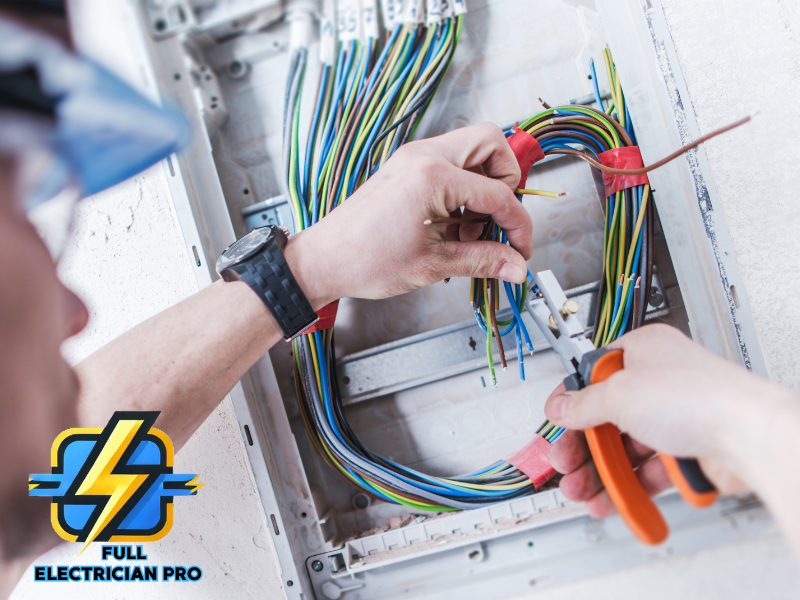
Wiring & Rewiring: Common Issues, Repairs, and Benefits
The wiring system in any home or business is the backbone of its electrical infrastructure, providing power to every device, light, and appliance. Over time, wiring can become outdated or damaged, making rewiring necessary to ensure the safety and efficiency of the system. In this guide, we’ll cover the common and uncommon issues with wiring, necessary repairs, and the benefits of upgrading your wiring system through professional rewiring.
Common Issues with Wiring & Rewiring
1. Outdated Wiring: Many older homes and buildings still have outdated wiring, such as knob-and-tube wiring or aluminum wiring, which is no longer considered safe. Upgrading to modern copper wiring is essential for safety and efficiency.
2. Frayed or Damaged Wires: Over time, wires can become frayed or damaged due to age, rodents, or accidental cuts. Damaged wiring can lead to power outages, electrical shocks, or even fires if not addressed.
3. Overloaded Circuits: Modern appliances and electronics require more power than older wiring systems were designed to handle. Overloaded circuits can lead to frequent breaker trips, overheating, or damage to electrical devices.
4. Loose or Faulty Connections: Loose wiring connections or poorly installed electrical outlets and switches can cause intermittent power loss, flickering lights, or even pose a fire hazard.
5. Inconsistent Power Supply: If your wiring is not properly grounded or installed, it can result in inconsistent power delivery to outlets, causing surges or dips in voltage that can damage appliances.
Uncommon or Complex Issues
1. Arcing and Short Circuits: Arcing occurs when an electrical current jumps between two points, often due to exposed or damaged wiring. This can lead to sparks, electrical fires, or power outages if not fixed promptly.
2. Incorrect Wire Sizing: Using the wrong gauge wire for the electrical load can lead to overheating, damaged appliances, or increased fire risk. Upgrading to the correct wire size during rewiring ensures that your electrical system can handle the required load.
3. Voltage Drops: Voltage drops can occur when wiring is too long or too thin to carry the necessary electrical load. This can cause appliances to malfunction or operate inefficiently. Rewiring with the correct gauge wire can solve this issue.
4. Inadequate Grounding: Proper grounding is essential for safety and the prevention of electrical shocks. Older buildings may lack adequate grounding, requiring rewiring to meet modern safety standards.
5. Hidden Wire Damage: Wiring that is concealed within walls or floors may be damaged over time due to moisture, pests, or wear and tear. Finding and repairing these issues requires specialized equipment and expertise.
Wiring & Rewiring Repairs
1. Full or Partial Rewiring: In older homes or buildings with outdated or damaged wiring, a full or partial rewiring may be necessary to replace dangerous or inefficient wiring. This ensures that the system meets modern electrical codes and safety standards.
2. Upgrading Electrical Panels: Rewiring often goes hand in hand with upgrading electrical panels, especially if you are adding new appliances or expanding your home. A modern panel can handle increased electrical loads and ensure safe distribution of power.
3. Fixing Loose or Faulty Connections: Rewiring may involve securing loose connections, replacing faulty outlets, and upgrading light switches to improve the reliability and safety of your electrical system.
4. Replacing Damaged Wiring: Damaged wiring that poses a safety risk should be replaced immediately. A licensed electrician can identify areas of concern and replace faulty wiring to restore safe and reliable power to your home or business.
5. Ensuring Proper Grounding: Rewiring provides the opportunity to ensure that your entire electrical system is properly grounded, protecting against electrical shocks and ensuring compliance with safety codes.
Reasons to Upgrade Wiring & Rewiring
1. Enhanced Safety: Rewiring an outdated or damaged electrical system is one of the most effective ways to enhance the safety of your home or business. Modern wiring reduces the risk of electrical fires, shocks, and power outages.
2. Increased Electrical Capacity: Modern homes and businesses require more electrical capacity to support appliances, electronics, and smart technology. Rewiring ensures your system can handle the load without frequent breaker trips or overheating.
3. Improved Energy Efficiency: Upgrading to newer wiring and energy-efficient components can reduce energy waste and lower your electricity bills. This is especially true if you're switching to LED lighting, energy-efficient appliances, or smart home systems.
4. Compliance with Electrical Codes: Electrical codes have changed significantly over the years, and older wiring systems may not meet current safety standards. Rewiring brings your electrical system up to code, which is important for both safety and resale value.
5. Future-Proofing Your Home: Rewiring is a long-term investment in the safety and functionality of your property. By upgrading your wiring, you're ensuring that your electrical system will be able to handle future technological advancements and electrical demands.
In conclusion, rewiring is an essential upgrade for any home or business with outdated, damaged, or inadequate wiring. Whether you're improving safety, increasing capacity, or future-proofing your electrical system, professional rewiring ensures that your property is equipped to handle modern electrical needs with safety and efficiency.